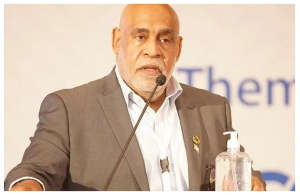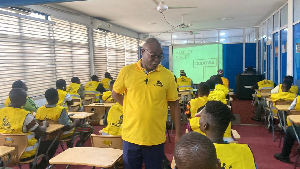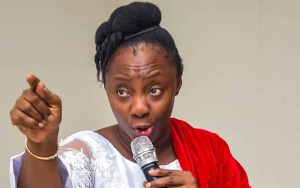With the 2024 election campaigns heating up, the United Nations (UN) Resident Coordinator in Ghana, Charles Abani, has urged the country to learn from the 1994 genocide against the Tutsis in Rwanda by guarding against hate speeches, divisive language, and names or labels that discriminate against or dehumanise others.
He said the country needed to maintain vigilance and strengthen early warning systems against incitement to violence of all forms, both online and offline, because genocide never happens without warning signs.
Speaking at a symposium held in Accra to commemorate 30 years of the genocide that led to the deaths of more than one million people in 100 days, he urged Ghana to “promote dialogue, uphold justice and human rights for all,” and promote unity over division in Ghanaian society.
“The horrors of that dark chapter of human history serve as a stark reminder of the consequences of hatred, division, and indifference. And although it takes Rwanda to come here to remind us about this, I would ask every Ghanaian, every West African, every African to reflect personally on what this dark history means and why it is important for us. Genocide is a word that evokes horror, sorrow, and disbelief,” he said.
The genocide was perpetrated after decades of state-sponsored discrimination and dehumanisation against the Tutsi group by colonial administrations and post-independence governments.
Organised by the Rwanda High Commission in Ghana, in partnership with the Ghana Institute of Management and Public Administration (GIMPA), the symposium aimed to increase awareness of the truth about what happened during the genocide and strengthen the commitment to fight hate speech, genocide denial, and impunity.
The UN Resident Coordinator, commiserating with the survivors, emphasised the critical importance of education and awareness to combat ignorance and hatred, especially for younger generations.
He stressed the need for justice, accountability, and ending impunity for perpetrators of atrocities like genocide, as well as building an inclusive society where all individuals are valued and rights are upheld as the path forward.
The Rwanda High Commissioner in Ghana, Rosemary Mabazi, emphasised the importance of accurately naming and representing the 1994 events as the “Genocide against the Tutsis” in Rwanda because it was a planned and targeted act.
Condemning the denial, distortion, or trivialisation of these events, including understating the over 1 million death toll, she said universities played a role in fuelling the genocide and urged current institutions to change that narrative through “education and memorialisation” efforts.
Ms Mabazi warned that allowing the conditions that enabled the Rwandan genocide could lead to similar tragedies elsewhere.
In a presentation on the history of the genocide, Prof. Denis Bikesha of the University of Rwanda, said despite the horrors that occurred, the country was making significant socioeconomic progress.
Politics of Saturday, 25 May 2024
Source: ghanaiantimes.com.gh

















